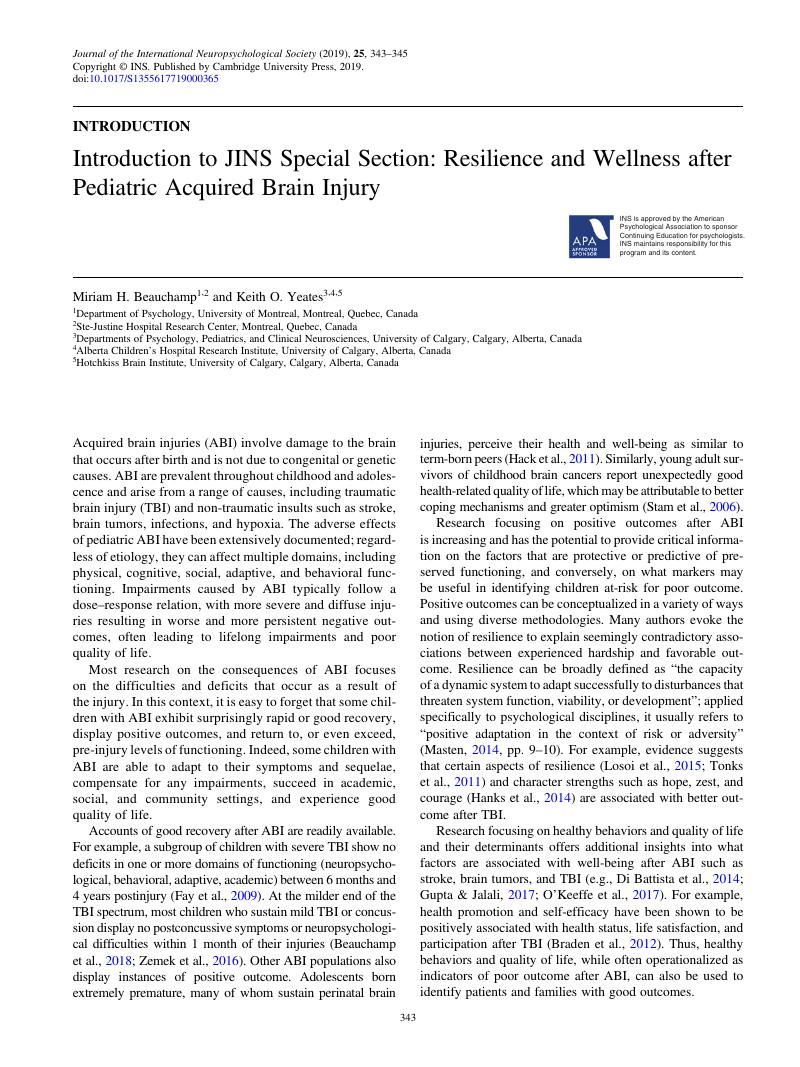Crossref Citations
This article has been cited by the following publications. This list is generated based on data provided by Crossref.
Analytis, Penelope
Warren, Narelle
Crichton, Alison
Knight, Sarah
and
Ponsford, Jennie
2022.
Coping and wellbeing in families with a child with acquired brain injury compared with families in the community.
Disability and Rehabilitation,
Vol. 44,
Issue. 25,
p.
7993.
Siegwart, Valerie
Benzing, Valentin
Spitzhuettl, Janine
Schmidt, Mirko
Grotzer, Michael
Steinlin, Maja
Leibundgut, Kurt
Roebers, Claudia
and
Everts, Regula
2022.
Cognition, psychosocial functioning, and health-related quality of life among childhood cancer survivors.
Neuropsychological Rehabilitation,
Vol. 32,
Issue. 6,
p.
922.
Smith-Paine, Julia
Moscato, Emily L.
Narad, Megan E.
Sensenbaugh, Josh
Ling, Brandt
Taylor, H. Gerry
Stancin, Terry
Yeates, Keith Owen
and
Wade, Shari L.
2023.
More to the story than executive function: Effortful control soon after injury predicts long-term functional and social outcomes following pediatric traumatic brain injury in young children.
Journal of the International Neuropsychological Society,
Vol. 29,
Issue. 4,
p.
325.





